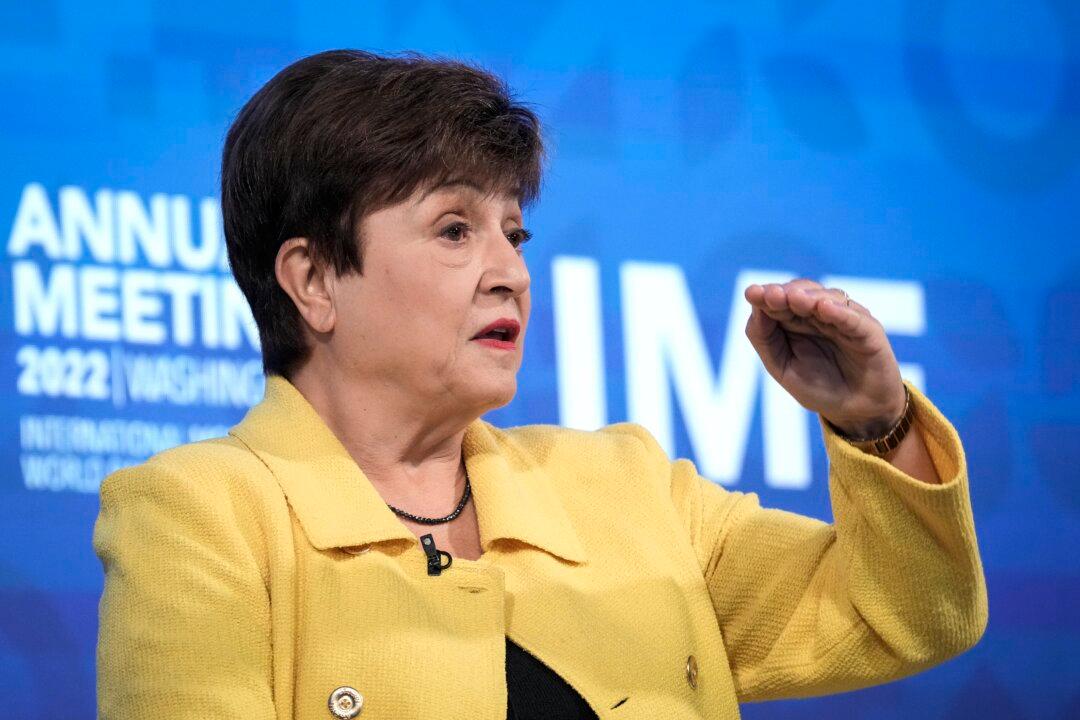The head of the International Monetary Fund (IMF), Kristalina Georgieva, has cautioned against the Federal Reserve slowing down with its interest rate hikes as it attempts to tame soaring inflation.
Speaking in an interview with The Associated Press on Tuesday, the IMF Managing Director was asked for her thoughts on pausing interest amid concerns that a strengthening U.S. dollar is weakening other currencies around the world, particularly those in poorer nations, and contributing to a cost of living crisis in those countries.




